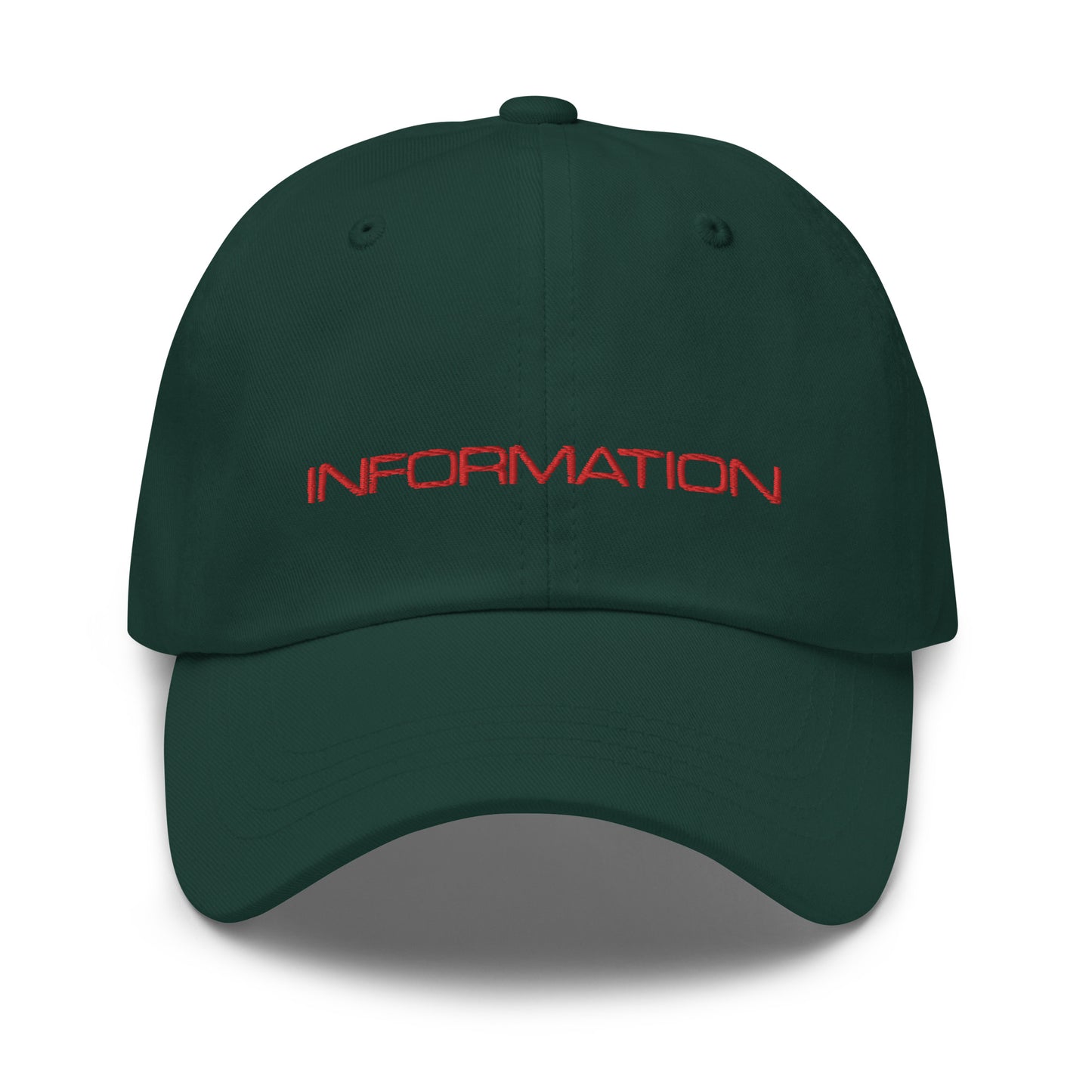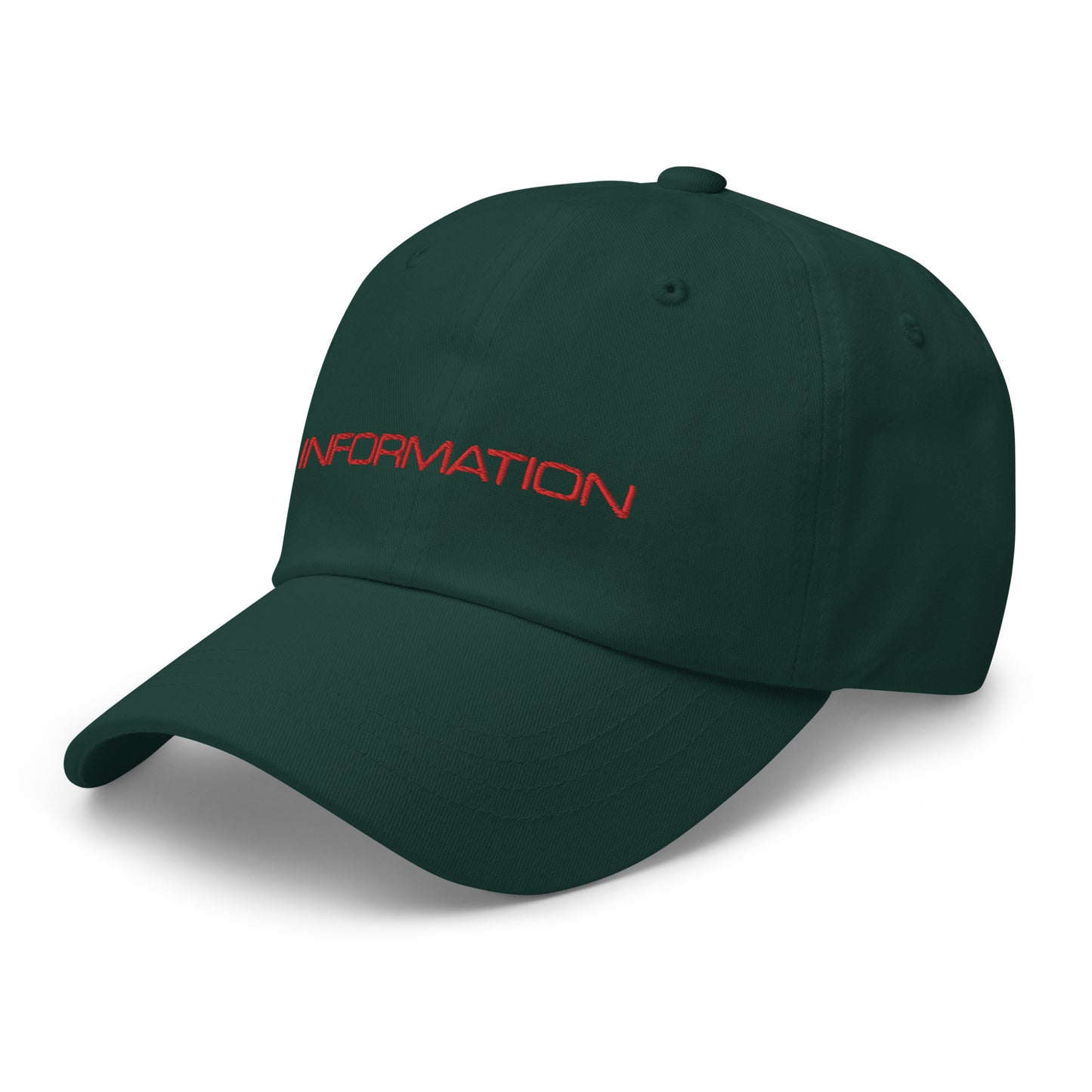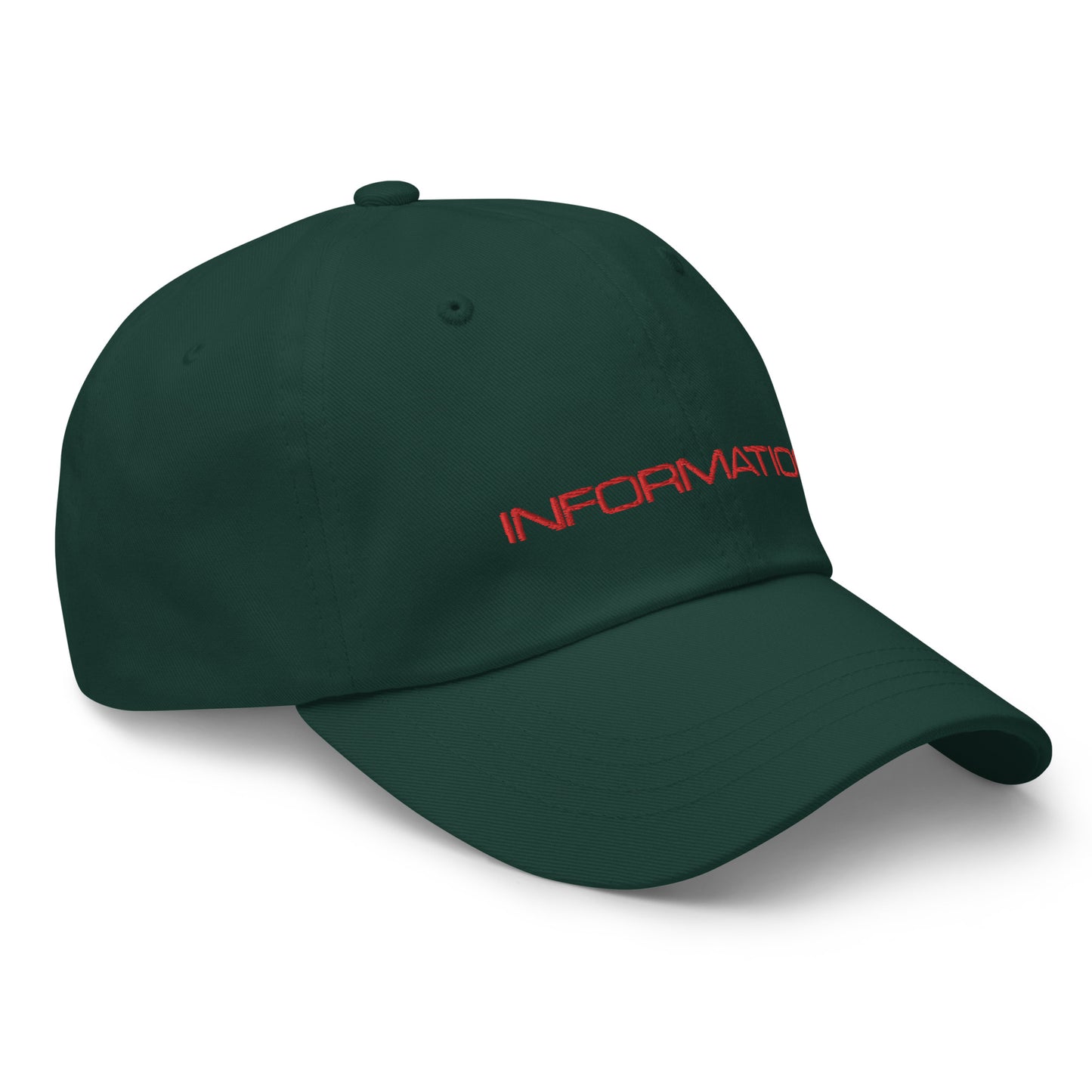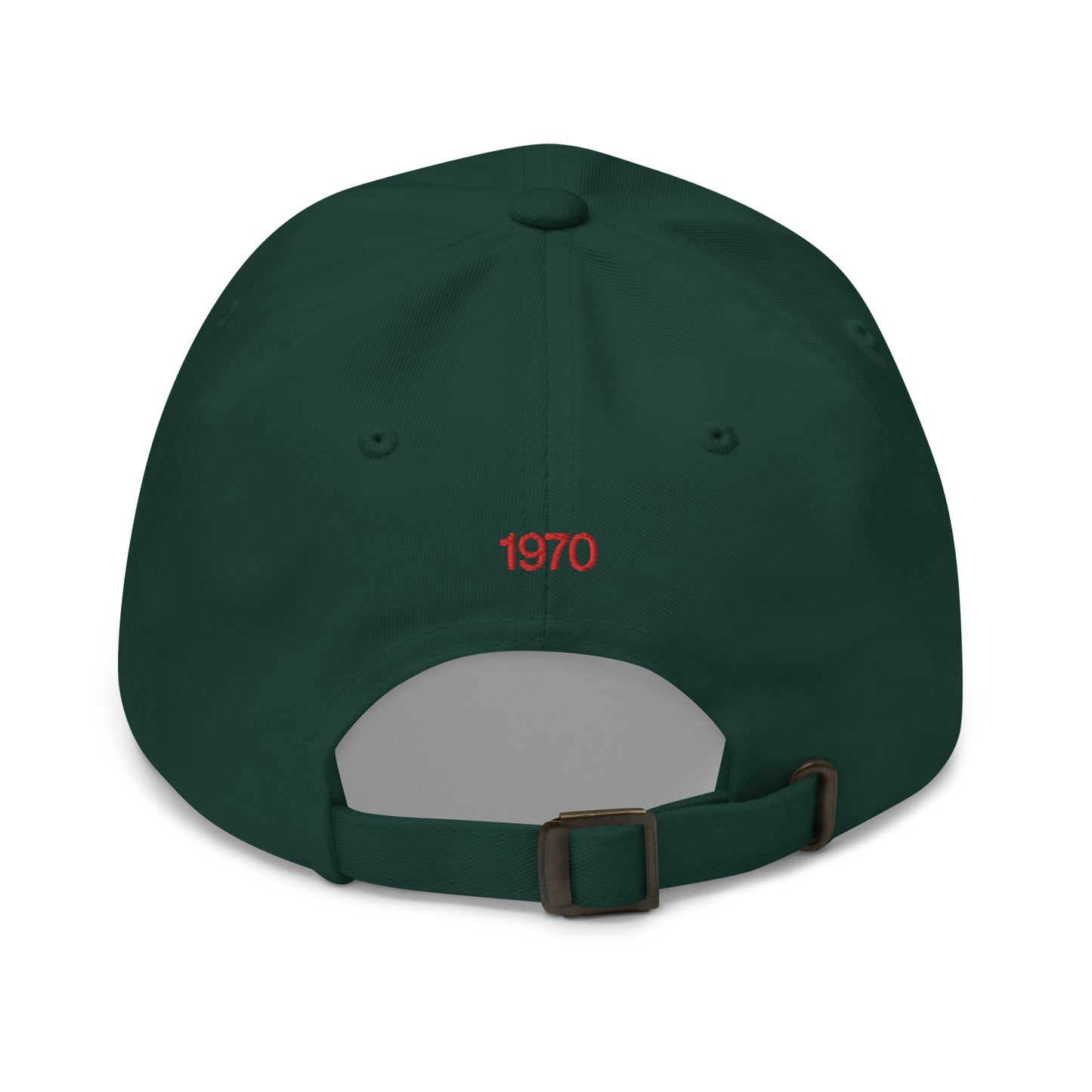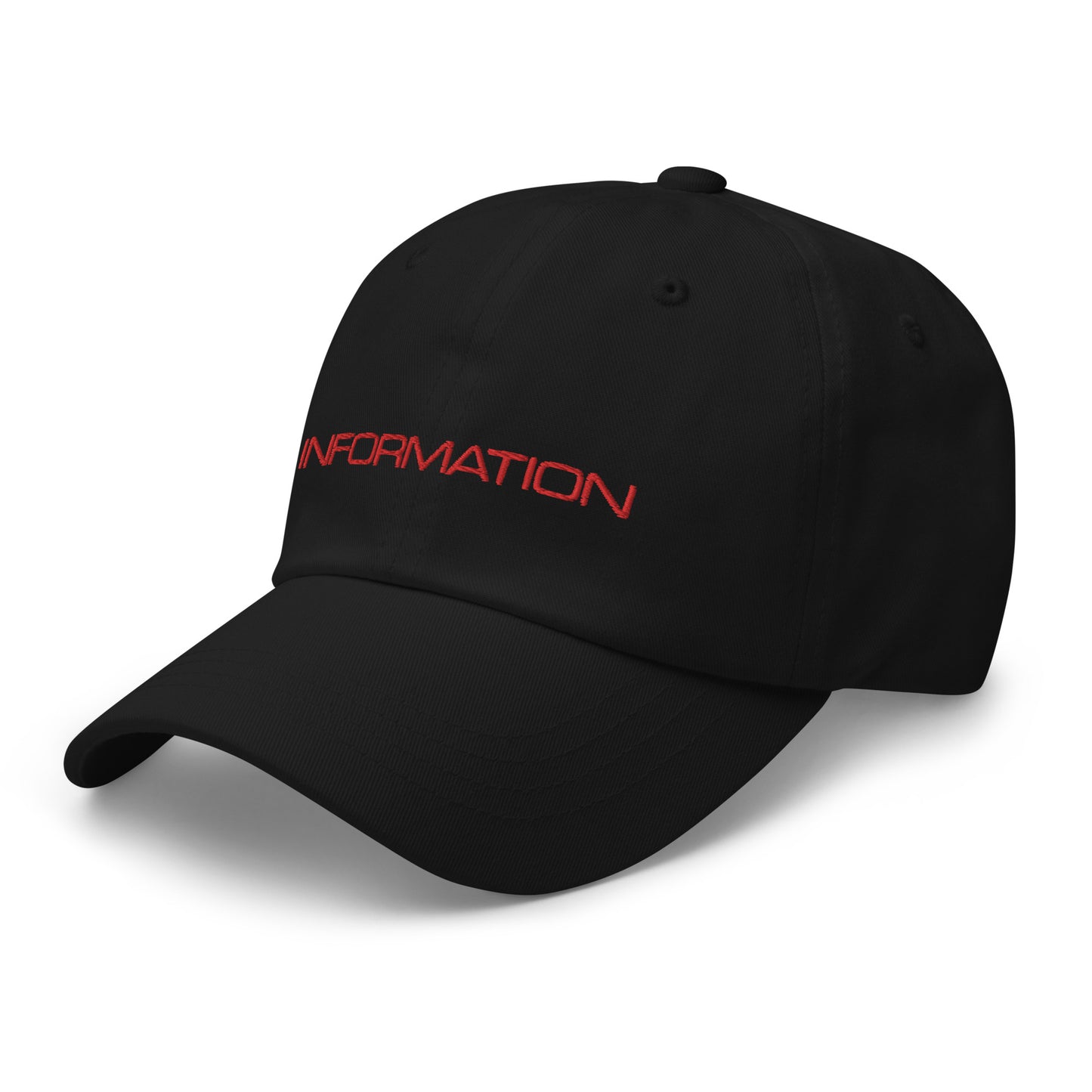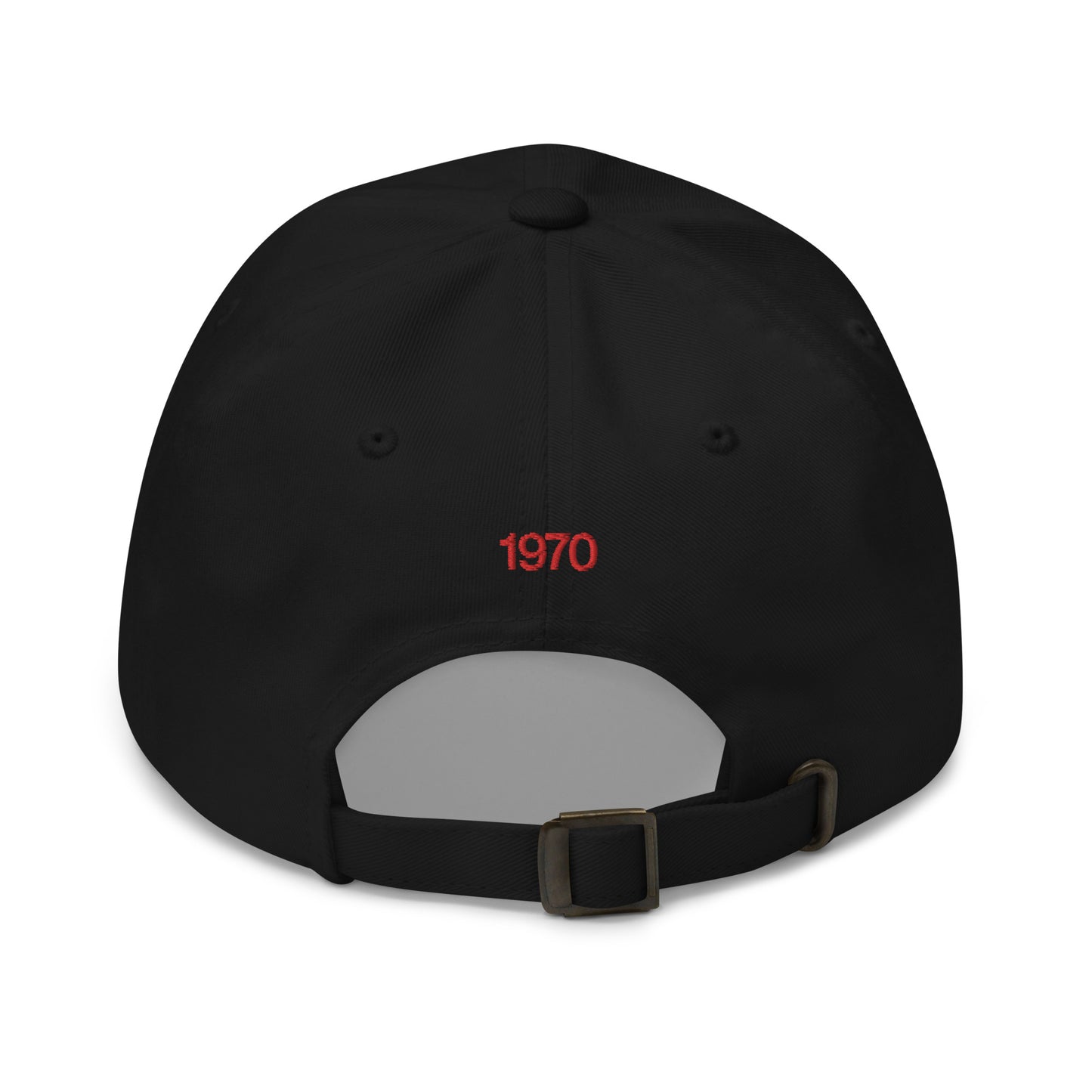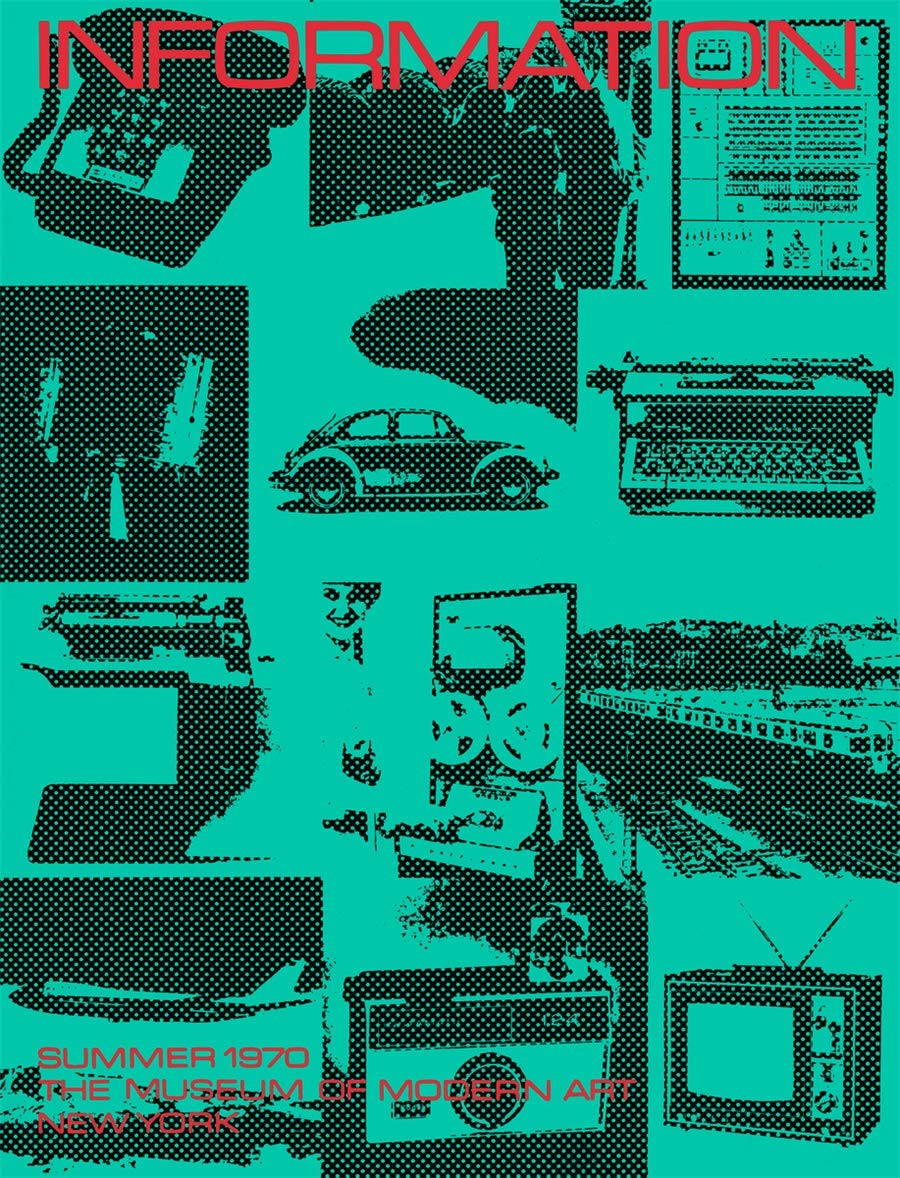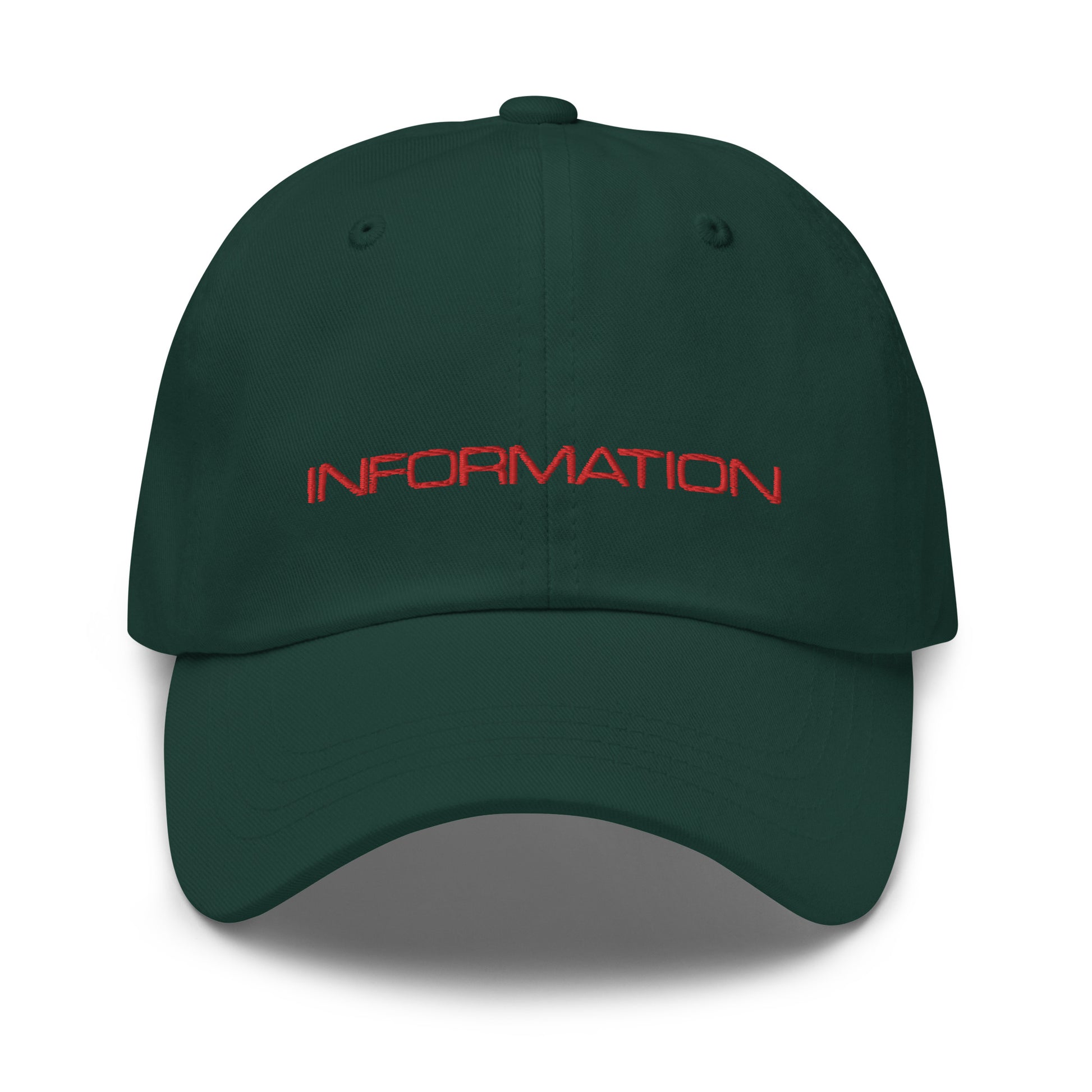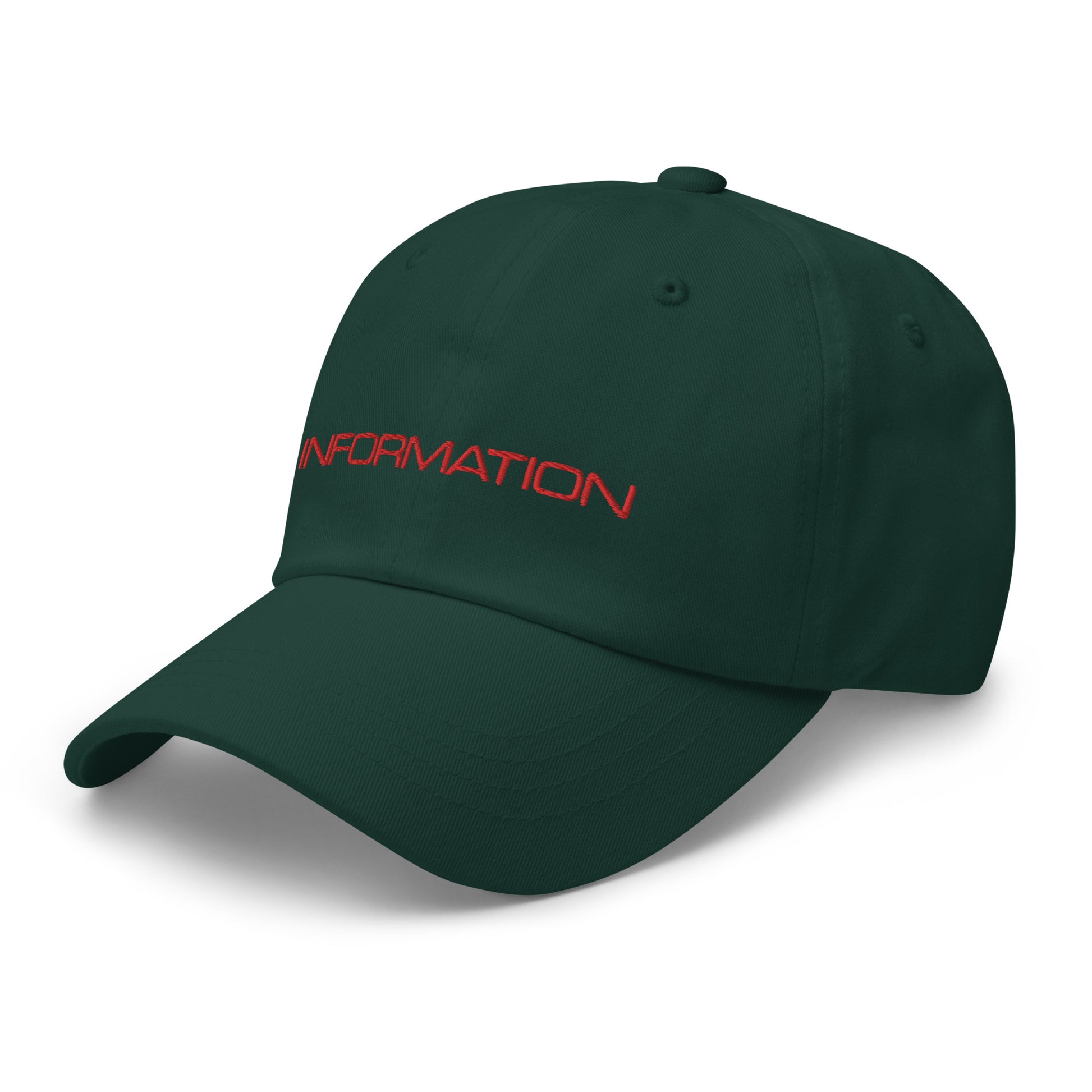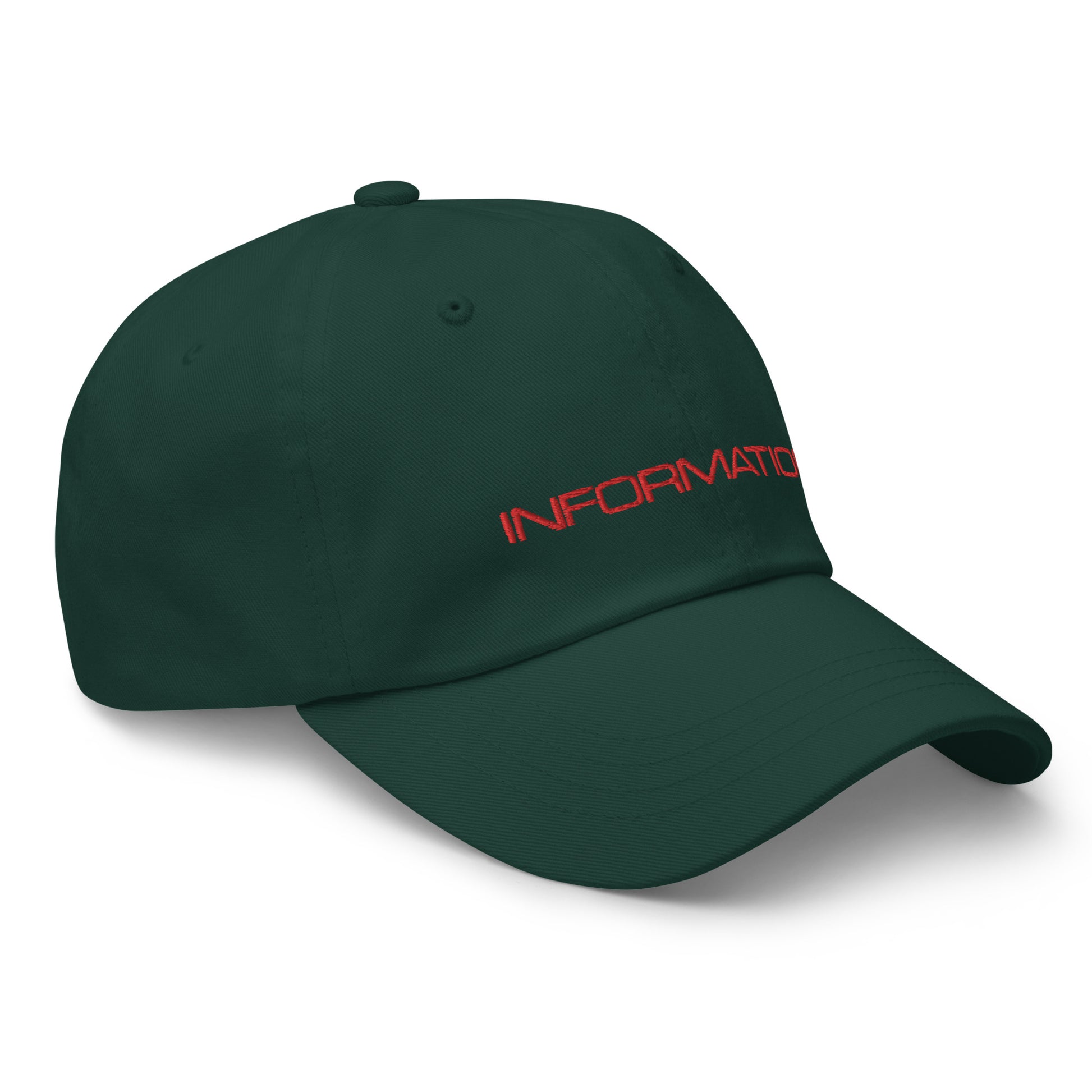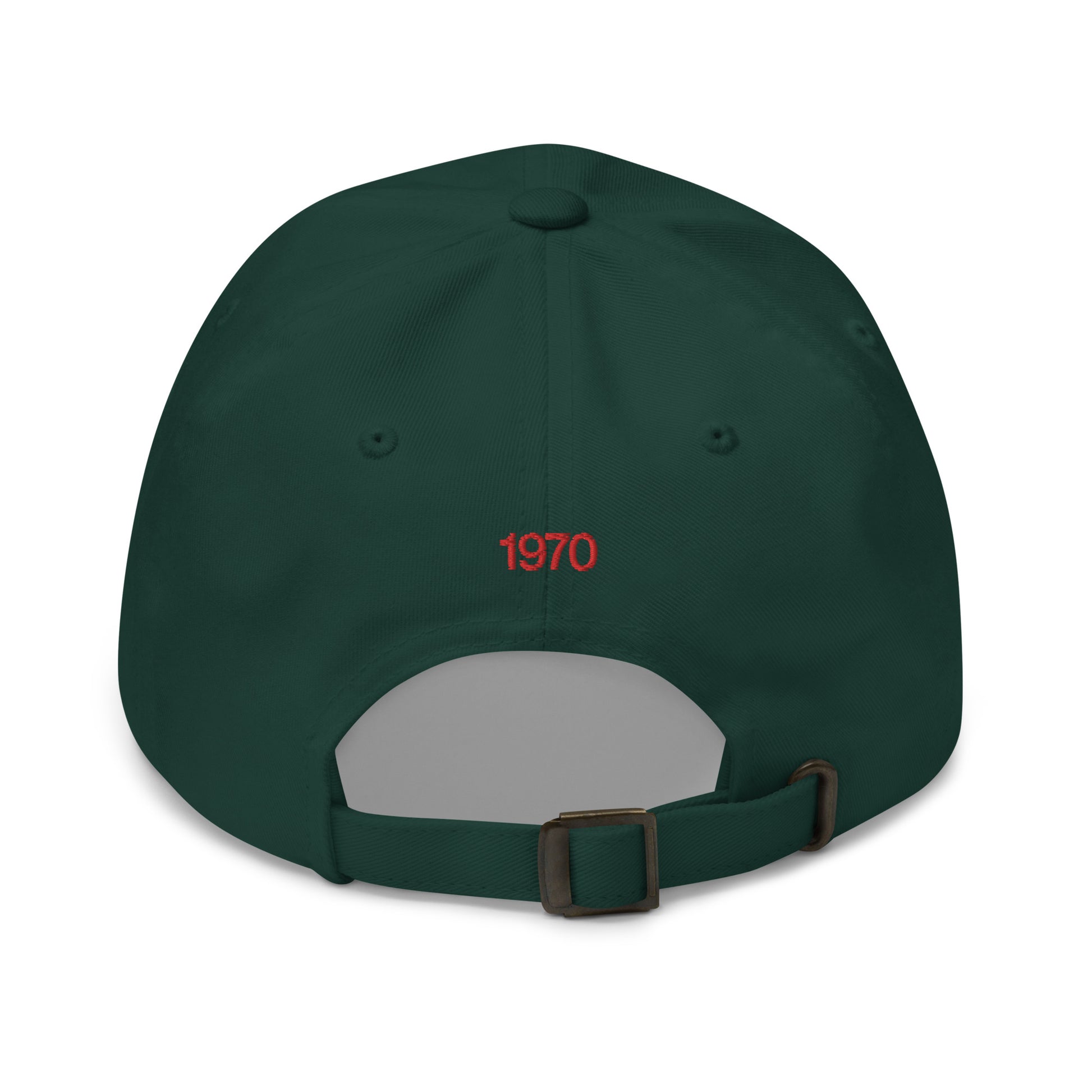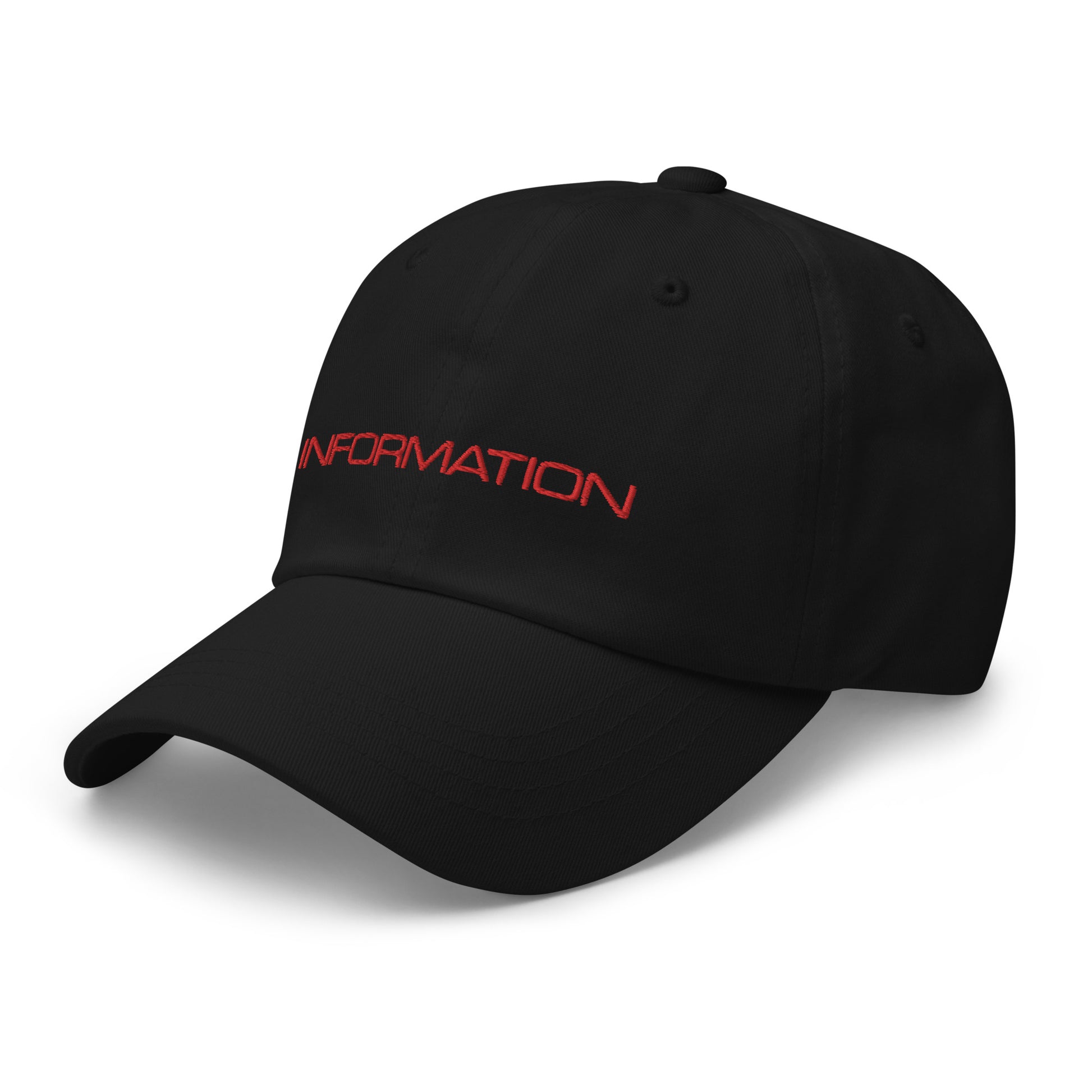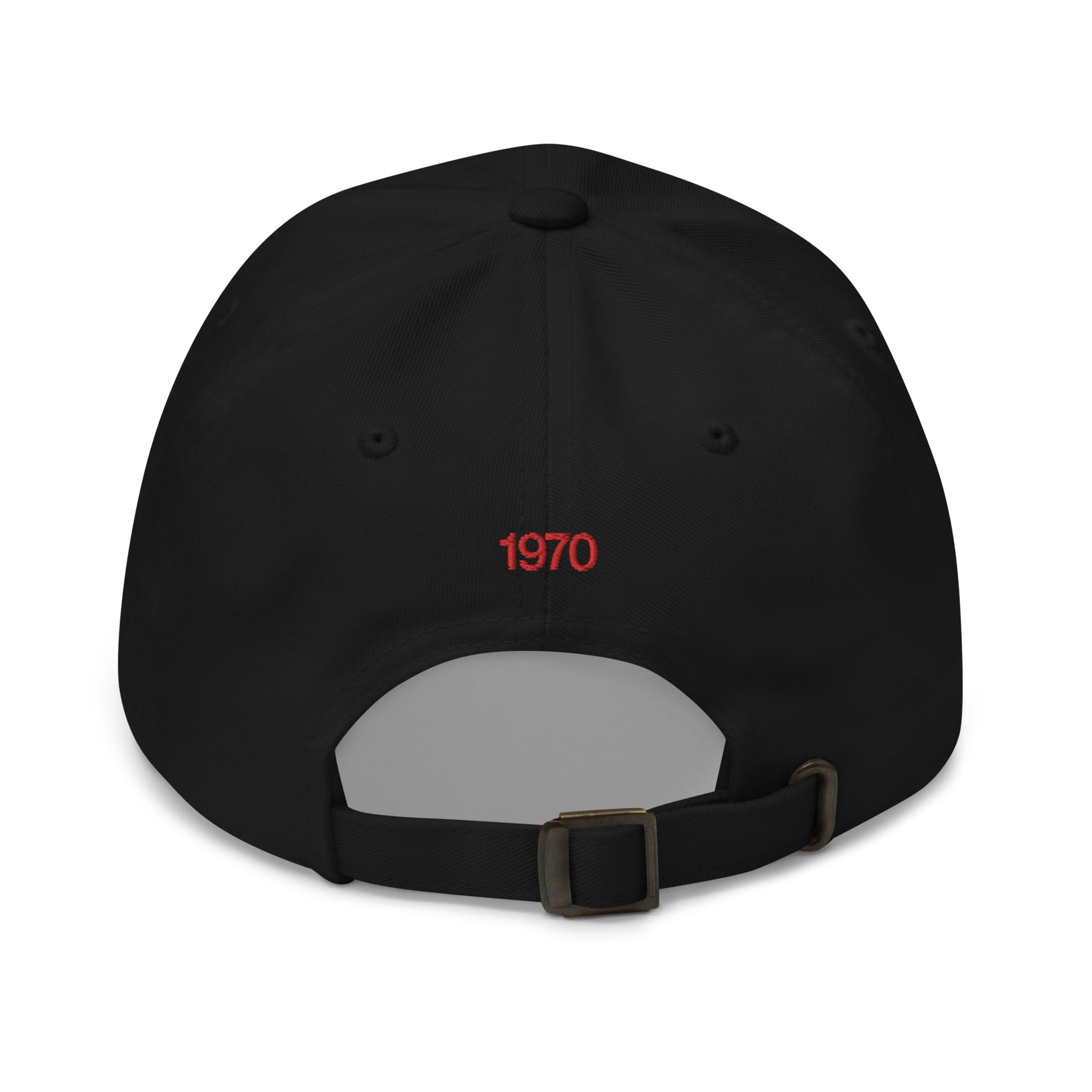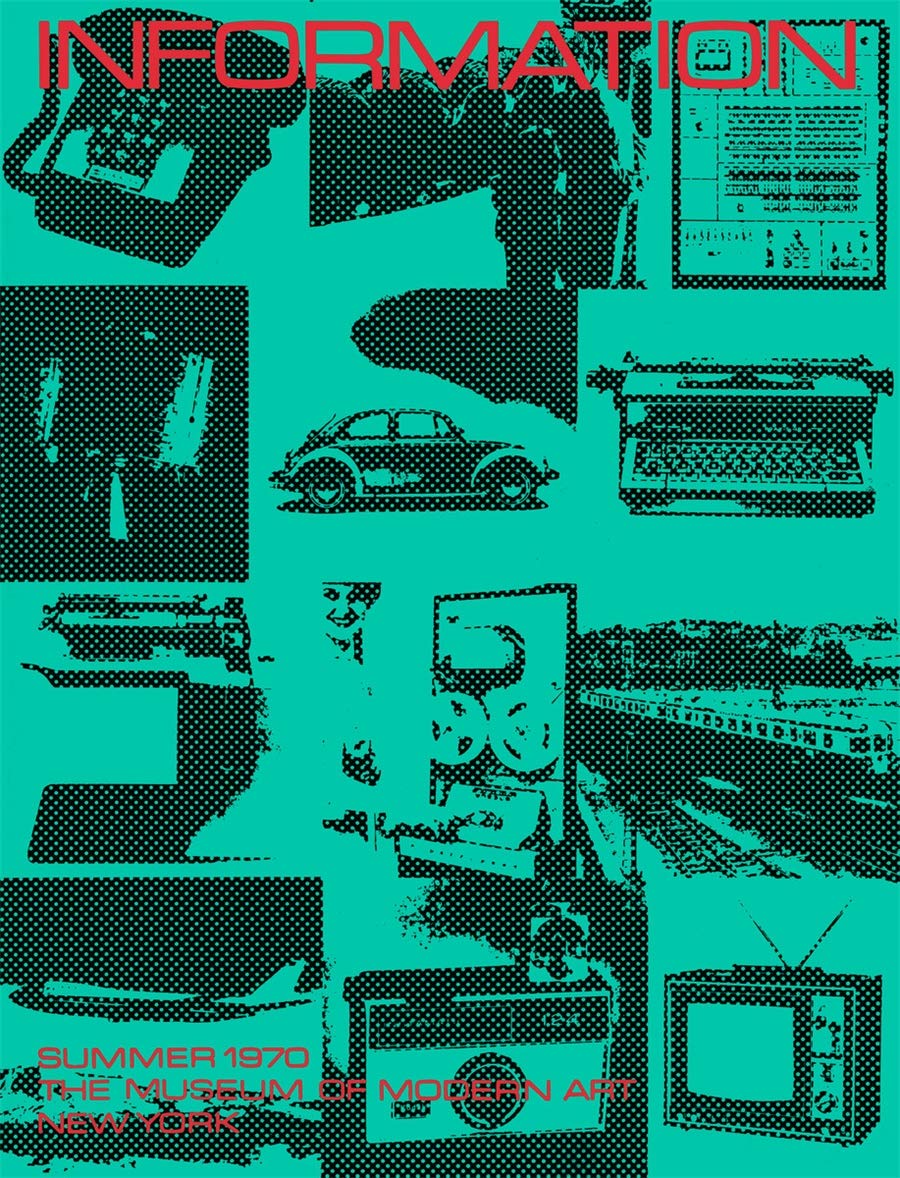Minor Canon
INFORMATION 1970 hat
Regular price
$35.00 CAD
Regular price
Sale price
$35.00 CAD
Unit price
per
Shipping calculated at checkout.
Couldn't load pickup availability
In the summer of 1970, The Museum of Modern Art in New York mounted the now legendary exhibition Information, one of the first surveys of Conceptual art. Conceived by MoMA’s celebrated curator Kynaston McShine as an “international report” on contemporary trends, the show and attendant catalogue together assembled the work of more than 150 artists from 15 countries to explore the parameters and possibilities of the emerging art practices of the era. Noting the participating artists’ attunement to the “mobility and change that pervades their time,” McShine underscored their interest in “ways of rapidly exchanging ideas, rather than embalming the idea in an ‘object.’” Indeed, much of the work in the exhibition engaged mass-communications systems, such as broadcast television and the postal service, and addressed viewers directly, often encouraging their participation in return.
Some artists toyed with bureaucratic systems: Vito Acconci changed his address to MoMA and collected his mail there every day, while Helio Oiticica created rooms and beds for people to relax in. Others thrust the Museum into conflict: Hans Haacke’s controversial MoMA poll asked visitors if they approved of New York Governor (and former MoMA president) Nelson Rockefeller’s attitude toward the Vietnam War; and John Giorno’s Dial-a-Poem prompted FBI surveillance of the show. Hannah Darboven proposed a numerical exercise, while Adrian Piper outlined methods of categorizing artistic production.
The catalogue, rather than merely document the show, functioned autonomously: it included a list of recommended reading, a chance-based index by critic Lucy Lippard, and individual artist contributions in the form of photographic documentation, textual description, drawings, and diagrams—some relating to work in the exhibition and others to artworks as yet unrealized. As with many conceptual publications, the book was "primary information."
This hat reproduces the typography of the title from the original catalogue, with an additional embroidered "1970" on the back. The "spruce" colour approximates the acid green of the original, while the black option is offered simply because it looks cool.
For more Information:
https://www.moma.org/magazine/articles/225
https://www.moma.org/calendar/exhibitions/2686
• 100% chino cotton twill
• Unstructured, 6-panel, low-profile
• 6 embroidered eyelets
• 3 ⅛” (7.6 cm) crown
• Adjustable strap with antique buckle
• Blank product sourced from Vietnam or Bangladesh
Some artists toyed with bureaucratic systems: Vito Acconci changed his address to MoMA and collected his mail there every day, while Helio Oiticica created rooms and beds for people to relax in. Others thrust the Museum into conflict: Hans Haacke’s controversial MoMA poll asked visitors if they approved of New York Governor (and former MoMA president) Nelson Rockefeller’s attitude toward the Vietnam War; and John Giorno’s Dial-a-Poem prompted FBI surveillance of the show. Hannah Darboven proposed a numerical exercise, while Adrian Piper outlined methods of categorizing artistic production.
The catalogue, rather than merely document the show, functioned autonomously: it included a list of recommended reading, a chance-based index by critic Lucy Lippard, and individual artist contributions in the form of photographic documentation, textual description, drawings, and diagrams—some relating to work in the exhibition and others to artworks as yet unrealized. As with many conceptual publications, the book was "primary information."
This hat reproduces the typography of the title from the original catalogue, with an additional embroidered "1970" on the back. The "spruce" colour approximates the acid green of the original, while the black option is offered simply because it looks cool.
For more Information:
https://www.moma.org/magazine/articles/225
https://www.moma.org/calendar/exhibitions/2686
• 100% chino cotton twill
• Unstructured, 6-panel, low-profile
• 6 embroidered eyelets
• 3 ⅛” (7.6 cm) crown
• Adjustable strap with antique buckle
• Blank product sourced from Vietnam or Bangladesh

